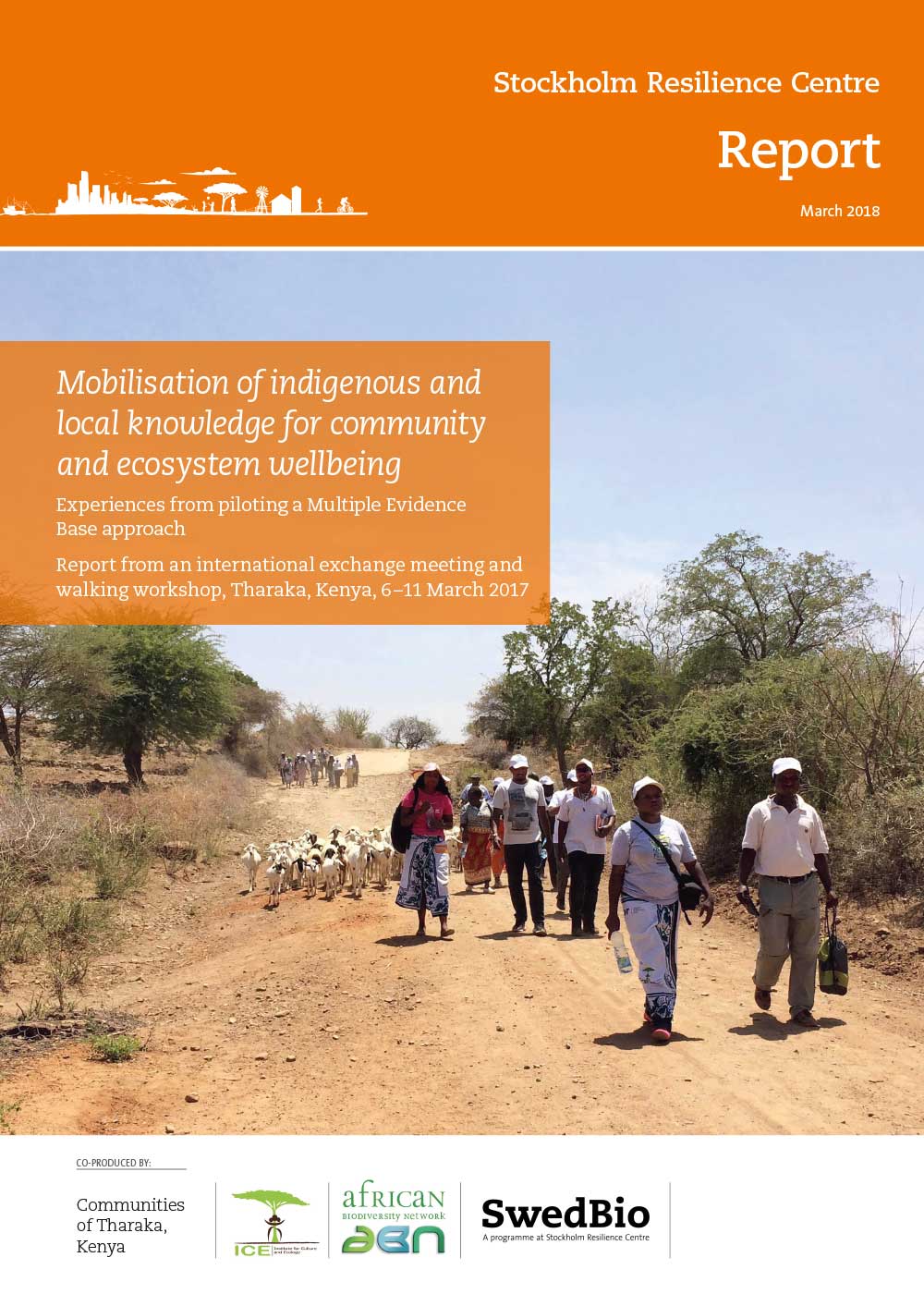Local communities and elders from all over the world, practitioners, scientists from different disciplines and advocacy leaders met in March 2017 in Tharaka, Kenya, to share knowledge on biodiversity governance and to learn from one another during an interactive walking workshop. The gathering of fifty holders of diverse knowledges was co-organised by Institute for Culture and Ecology (ICE), African Biodiversity Network (ABN) and SwedBio at Stockholm Resilience Centre (SRC), with Tharaka community as the local host.
Participants from Kenya, Ethiopia, the Philippines, Thailand, Tanzania, Benin, South Africa, Zimbabwe, Uganda and Sweden came together to follow up on earlier dialogues in Thailand and Panama, in a process aimed at facilitating meetings across knowledge systems and exploring a Multiple Evidence Base approach (MEB). The MEB approach invites indigenous, local and scientific knowledge systems to be equal partners in contributing useful knowledge for ecosystem governance. All of the knowledge systems are recognised and respected as equally valid and valuable for the benefit of biocultural diversity, nature’s contributions to people and human well-being.

 Mobilisation of indigenous and local knowledge for community and ecosystem wellbeing
Mobilisation of indigenous and local knowledge for community and ecosystem wellbeing Pernilla Malmer
Pernilla Malmer